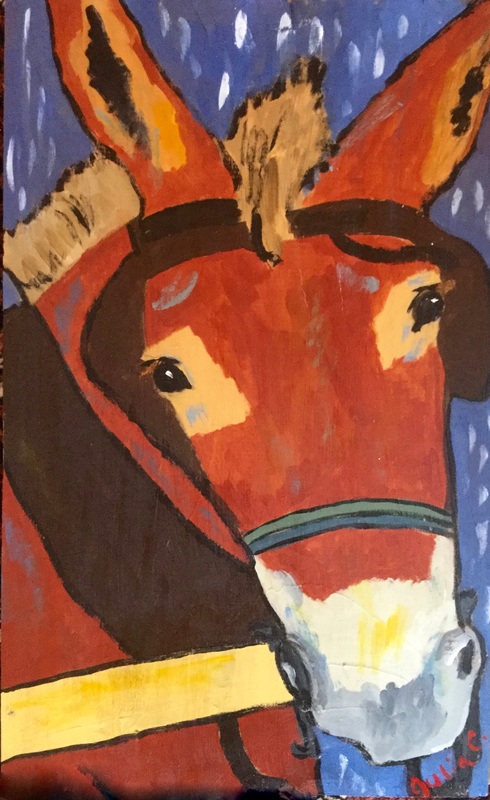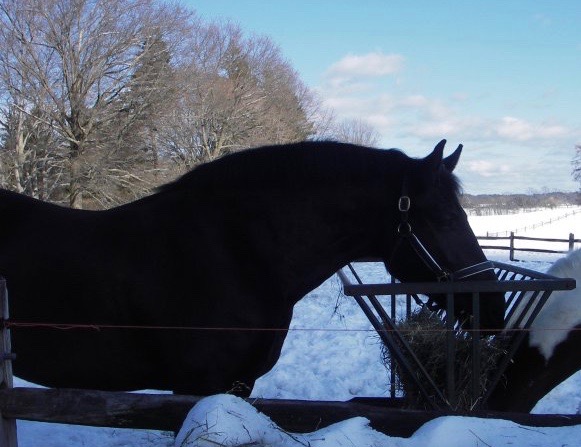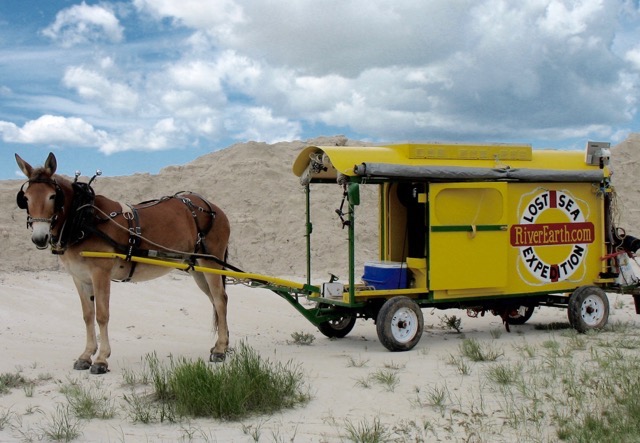|
A proud black horse and an unassuming little mule. I think they have it all wrong...read my tale of two equines here. It is not known if higher order animals like mammals and birds feel pride. Pride is thought by those scientists who study emotions to be one of the complex emotions. Complex emotions are thought to require more self-consciousness and cognitive processing than basic emotions. The basic emotions are happiness, sadness, anger, surprise, disgust and fear. They come to us and other higher order animals automatically.
This fact is no longer debated as it once was. There is, however, still debate over the complex emotions. Which animals have which ones? Can cats be jealous? Do dogs feel guilt? Can chimps be embarrassed? Can a horse or a mule be proud? As far as pride in equines my personal experience is a split debate. My tale of two equines regarding pride is this. I know a horse that seems proud and has done nothing amazing to deserve her sense of self worth. I also know a mule who has many reasons and accomplishments to feel proud about but shows absolutely no evidence of this emotion in her personality. The proud horse is a big, pushy mare named Sara. She is beautiful, shiny and black. She has a thick neck and a long mane. Sara looks a worthy mount for a famous knight. When ever she is ridden around people, there are comments about her beauty. This mare likes to show off. It seems crazy to say but others besides me have also noticed it. Alone she can be lethargic, uncareful and lack energy. When she is in front of spectators she steps higher, arches her neck and sprouts wings over fences. If she were a person, I'd describe her as haughty, even though I like her. It seems she notices when she is being judged against other horses because that's when she chooses to strut her stuff the most. This doesn't always mean she's a good competitor. Sometimes her show off routine involves snorting and bucking until it is channeled into the task at hand. As a horse trainer I know that this reaction in Sara could be explained simply by an increase of anxiety. She feels the stares of people, the energy and anxiety of the other horses and the emotions of her rider. She could simply be reading my emotions or whoever is on her back and reacting to what she is sensing from us and the others around her. To think of Sara's behavior as pride is perhaps a true case of anthropomorphism. I and others see a horse that thinks she is better than the rest and struts her stuff. We see her reaction to the stimulus around her, her increase of energy, and to us her behavior looks like pride. This seems likely and reasonable, but a part of me still feels that Sara demonstrates a haughty kind of pride. Perhaps it is just mirrored off people's admiration of her looks. Sara has done nothing extraordinary to deserve her proud behavior other than being born a big, black, good-looking horse. On the other hand, I also know a small, unassuming mule named Polly. Polly has pulled a wagon 2,500 miles across the United States. She has crossed Newfoundland as well. Polly has put in hundreds of days on the road, survived hailstorms, tumbleweeds, traffic, lightening and crowds. She's been on TV shows, stood on theater stages and been to drive in movies. She is an amazingly calm and well adapted mule. For all her accomplishments and experience, she shows not one ounce of pride. In the literature on the human emotion of pride, two forms of pride are described, hubristic and authentic. Hubristic pride is self-aggrandizement, arrogance, conceit. What I see in Sara. Authentic pride is confidence and a sense of accomplishment. Polly may not have a sense of accomplishment for all that she has done but she is a confident mule. Maybe authentic pride is unassuming and hard to notice in a mule. If Polly isn't proud and she has the emotional equipment to be, she sure deserves to be. Maybe people make animals have pride based on what we sense about them when we meet them. Hey, give Polly another look. That mule has done a lot!
0 Comments
Leave a Reply. |
Archives
June 2019
|



 RSS Feed
RSS Feed